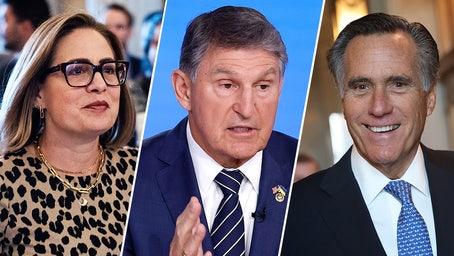A growing divide within the Republican Party over foreign policy has emerged, with some members, including Senate candidate JD Vance, advocating for a return to Trump-era isolationism.
The prevailing Republican Party stance on foreign policy has undergone a significant shift in recent years, with a growing number of members embracing isolationism, a strategy not widely held since before World War II. This divide within the party has been highlighted by the arguments of Senate candidate JD Vance, who has joined Donald Trump's presidential campaign as his running mate.
Vance and Trump advocate for a withdrawal from the U.S.'s traditional interventionist approach in foreign affairs, arguing that the nation has become overextended in conflicts abroad. They believe that America should prioritize its own interests and focus on countering threats such as China.

Trump and Vance Challenge Conventional U.S. Foreign Policy, Embrace Isolationism
This isolationist stance has drawn criticism from within the Republican Party, with many members adhering to a broader U.S. international presence. They argue that the U.S. has a responsibility to maintain its influence and alliances, particularly in Europe, to effectively address global challenges.
Victoria Coates, a former deputy national security adviser to Trump, has described the shift towards isolationism as a "rejection of the traditional establishment neoconservative stance, which favors military intervention to promote democracy."

Trump and Vance Challenge Conventional U.S. Foreign Policy, Embrace Isolationism
Vance has been particularly outspoken in his criticism of interventionist foreign policy, claiming that it has led to disastrous results. He has specifically targeted Senate Minority Leader Mitch McConnell, accusing him of being wrong on nearly every foreign policy position he has taken.
The push for isolationism within the Republican Party has raised concerns about the future of transatlantic relationships, particularly with NATO allies. Some experts believe that a Trump presidency could weaken the alliance by cutting aid to Ukraine or withdrawing U.S. troops from Europe.

Trump and Vance Challenge Conventional U.S. Foreign Policy, Embrace Isolationism
However, others argue that the U.S. must maintain its European relations to effectively address global threats such as China. Hal Brands, a senior fellow at the American Enterprise Institute, argues that "U.S.-China competition is not simply a regional competition. It involves things like control of advanced technologies, as well as things like the military balance of power."
The growing support for isolationism within the Republican Party has prompted warnings from those who believe it could lead to a repeat of past mistakes. Brands has drawn parallels between the current isolationist sentiment and the reluctance of the U.S. to intervene in European affairs in the lead-up to World War II, which ultimately emboldened Adolf Hitler.

Trump and Vance Challenge Conventional U.S. Foreign Policy, Embrace Isolationism
Despite these concerns, Vance has rejected the "isolationist" label, claiming that his opposition to sending funds to Ukraine is based on fiscal conservatism rather than isolationism. However, his views have aligned with the broader isolationist trend within the Republican Party, which has raised questions about the future of U.S. foreign policy.












